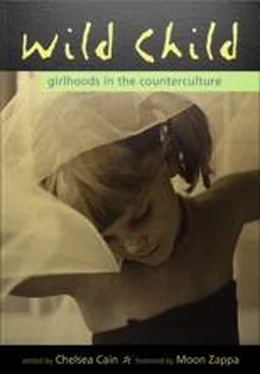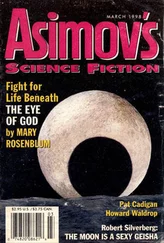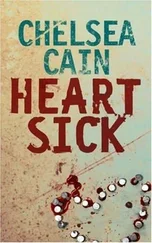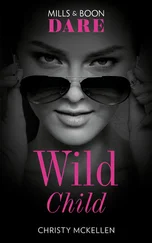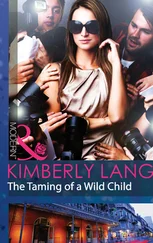
Chelsea Cain
Wild Child: Girlhoods in the Counterculture
© 1999
Moon Zappa
My name is Moon Unit Zappa. I was born in New York City on September 28,1967. So the story goes, my parents had been married just a handful of days prior to my birth, and as my father was leaving to go on tour for a frightful stretch in support of his latest musical efforts (and us), he gave my mother the option of naming me either Moon Unit or Motorhead. A simple offering of two names to choose between in his absence, having nothing to do with gender. When I arrived she selected Moon.
Were we hippies? My dad hated granola and tofu. In fact, he willfully ate Hormel chili from the can and plump-when-you-cook-‘em meat hot dogs, which he skewered on a fork and cooked over an open gas burner on our kitchen stove, like a home-owning hobo. No one was Oming in my house and pachouli and drugs were forbidden. The pure hit of reality was the high we were riding.
Yet we called our parents Frank and Gail (never Mom and Dad), we were allowed to decide whether or not we felt like going to school on any given day, and later, when we were teenagers, my mother insisted that we shower with our overnight guests in order to conserve water.
We lived in Laurel Canyon. Where all the rock stars were. Where all the artists were. Where all the people who were going to take over the world with their God-given creativity were. My mother smoked cigarettes and ate mostly peanut butter and grapefruit. She didn’t wear shoes when she went to the grocery store. She certainly didn’t wear a bra. She made English Breakfast tea with milk and sugar for scantily clad women with smudgy eye makeup, women who smelled like powdery old books. The men who visited us had patchy beards and bad posture and smelled like B. O. Crouching in the nude near my playthings, they melted brightly colored crayons and made candles out of old milk cartons. Everyone seemed to be unwashed, musky and recently fucked. If they wore clothes, they were flamboyant, mismatched garments with bright colors and crazy patterns that clashed. On the men, clothing always clung to the fleshy parts of their bodies, and drooped and flared where there was hardly any meat on their bones. The women wore tissue paper-thin kerchiefs or dyed, crocheted, doilyesque halters that left nothing to the imagination. I have a vague memory of women attempting to conceal large areolas with black masking tape and colored Magic Marker.
At my house, clothes were an extension of the imagination, used to name who or what you were for the hour or so you had them on, a dinosaur or a witch or a superhero. Clothes were costumes for putting on shows. When I had to leave the house and go to a place where people might be wearing clothes, my mother let me wear my frilly coocaracha underwear on my head. My hair was wildly unbrushed and I could pull clumps of it out of the leg holes to make ears if I wanted, but mainly my undies were a hat. Once, when my mother (barefoot, of course) hitchhiked to the grocery store with me in tow, a man approached us in the dairy section and tried to sweet-talk me to get to her. At the ripe old age of two, I already knew enough to sense that something was energetically ick about the whole shabooh, and reportedly announced, ‘Fuck off, pervert.’
By the time I was six, I began to notice that my family was different. My first clue was a television show for preschoolers called Romper Room . At the close of every show the teacher would look in her magic mirror and say goodbye to the children lucky enough to be named Susan or Kim or Debbie or Michael or Billy. No mention of a Moon Unit or a Dweezil (my brother, two years my junior, with hair and eyelashes longer than my own). Nor did we look like the children on an incomprehensibly dull Mr. Rogers or Sesame Street. No first-graders I knew found pornographic cartoons lying around next to blow-up sex dolls in their childproof homes with the backyard swingsets. They didn’t know about R &B or astrology or the Ouija board or how to have a seance. Absolutely no one my age cussed (and therefore remained sadly unaware of our terrific free-dom-of-speech amendment) or knew what gay was or made Barbie and Ken fuck and orgasm loudly or bent spoons in her spare time or got to stay up late and either go to clubs, or watch scary movies or skin flicks with their moms and dads. Other children could not keep up with me or keep me entertained; neither could timid grownups for that matter. The most fun I could hope for was to see the look of horror on another child’s face, one with the normal parents, as I scared her into awareness, hoping, I now realize, to get a glimpse of what my reaction to what was happening around me was supposed to look like.
Which is why when I first heard about Chelsea ’s project, I took an immediate interest in the book. The testimonials of children caught between two worlds? Hippie parents combined with obedient, conservative grandparents? The pendulum swing of our parents’ chosen lifestyles in sharp, rebellious contrast to the lives their parents chose, and the effects of all this on their lab-rat offspring? Yippee! Throw in a special, soul-sisters-only vibe from the daughters of the daughters who courageously said ‘yes’ to living life as the equals of men, in defiance of societal norms and authoritarian opposition, and you have one sa-weet deal. For me, personally, a chance to not feel like a mutant outcast because I get to discover other girl humans who endured some of the same bizarro shit in their households.
It turns out I’m not the only one who grew up with the same regard for everyone and every living thing. Like these ladies, I was taught that no man or woman is above you. Not even a policeman or a president or a pope. I was told these are just jobs. People in the army or the government, or lawyers…that’s just what they do, not who they are. Authority figures? Ha! Underneath their uniforms and beliefs are flesh and blood humans, same as me. We all answer to something larger than ourselves; therefore, the act of simply calling a teacher or a grownup ‘Miss’ or ‘Mr.’ seemed like a ridiculous, arbitrary, socially agreed-upon rule for an agreed-upon order. It stirs up the same confusion in me now when I stop for a red light in the middle of the night on a deserted road. (I confess, sometimes I sneak through. But ya better do it while you can, before they implement those evil cameras at every corner to monitor our diligence in obeying the rules about when to stop and when to go.) At my house we were exposed to everything, because knowledge is power. At my house there was no supervision, so there was no reason to sneak. At my house there were no rules, so there was nothing to rebel against. I hated it.
It always left me with an awful floating feeling that most, if not all, of these lovelies experienced, of too much space, of too many choices. I felt very often (and still do) like I was doing a moon walk and my cord came loose from the ship. Ick. I craved rituals and rules like my friends had. I prayed for curfews and strictly enforced dinner times. Uniforms and organized events and people with goals amazed me.
Before reading this book, I thought of hippies as people who were in tune enough with nature to remember to look up from time to time-to notice the vigilant sun and moon standing as sweet reminders that happiness is always available to us-but not grounded enough to retain and make use of this understanding. Hippies can’t be bothered with uptight concepts like good grooming or looking presentable. Hippies take the time to discover ‘the truth’ about Who We All Really Are out in the boonies, safe from society’s soul-poisoning distractions, but do not have actual jobs, and whose discoveries are therefore rendered useless and ineffectual to the rest of man(notso)kind. Hippies are either meditating in absolute silence, or in symbiosis with nature and her bountiful herb-eating, growing and smoking organic, but lacking the follow-through to vote or take action to protect all things green. God knows how slowly things run in a health food eatery or co-op checkout line. Hippies explore sexually taboo terrain but their children, too young to choose the lifestyle for themselves, suffer the consequences of being exposed to too much stimulus too early on, more than most of us experience in a lifetime.
Читать дальше
